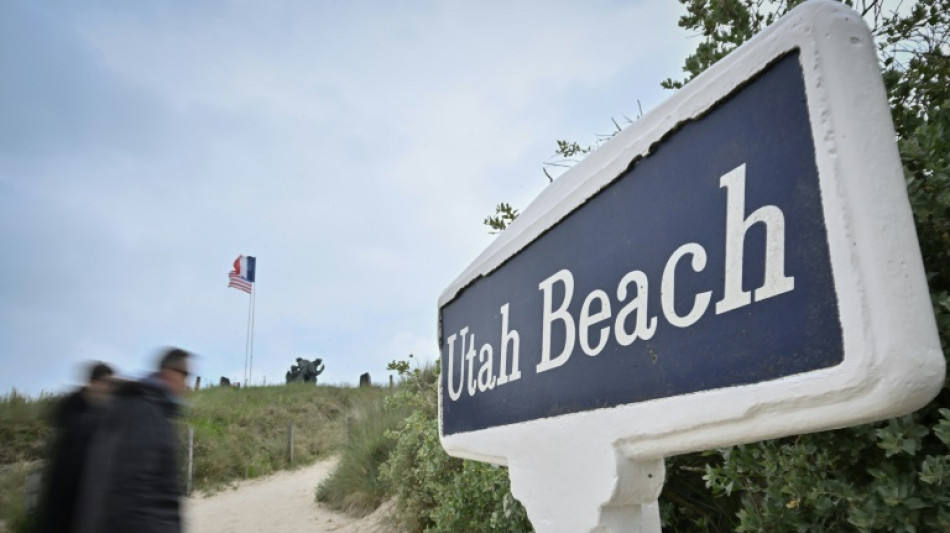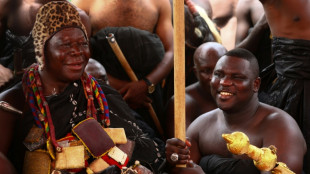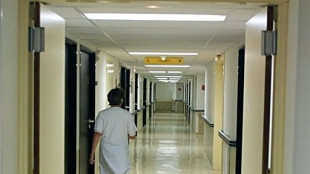

As war again shakes Europe, leaders mark 80 years since D-Day
Western leaders will this week mark on the beaches of northern France 80 years since Allied troops surged into Nazi occupied Europe in the World War II D-Day landings, haunted by the war again raging on the continent as Ukraine battles Russian invasion.
French President Emmanuel Macron is to host US President Joe Biden, British King Charles III and Canadian Prime Minister Justin Trudeau on the shores of Normandy, representing the three main countries involved in the landings on June 6, 1944.
But in a strong act of symbolism, Ukrainian President Volodymyr Zelensky will also attend.
No official from Russia has been invited, after Paris reversed plans to host lower-level representatives in recognition of the Soviet Union's immense contribution in World War II.
The most honoured guests will be the surviving veterans: some 200 are expected, a number that is dwindling every year with most at least in their late 90s and some over 100.
But as leaders pay their respects to the veterans of World War II, the all-too-modern war that has raged for over two years since Russia's invasion of Ukraine in February 2022 will be uppermost in their minds.
- 'Galvanise our resolve' -
Biden, Macron and Zelensky will be coming together at a critical moment in the conflict, with Kyiv warning that Russia risks gaining the upper hand without a significant increase in Western help.
Macron has already sought to break taboos by refusing to rule out sending troops to Ukraine, a position that unsettled some EU allies.
But there have been shifts in recent weeks, with the West showing readiness to allow Ukraine to use Western weapons to strike targets in Russia and France pushing for the deployment of European military instructors in Ukraine.
Macron, who once sought to build a relationship with President Vladimir Putin, has repeatedly warned about the existential nature of the Ukraine conflict for Europe, saying in a speech in April that "our Europe is mortal, it can die."
"Never will we forget the sacrifice of thousands of young soldiers" who crossed the Channel that day, the French president said in a statement ahead of the ceremonies, expressing the "unending gratitude" of France.
Referring to the war in Ukraine, he said the current time "is a period that challenges us to ask what price we are prepared to pay for our freedom and for defending our values.
"May the example of these heroes -- whether renowned or anonymous -- galvanise our resolve and our belief in a future of peace and security."
- 'The longest day' -
The landings by Allied forces, backed by airborne operations that parachuted troops direct onto occupied soil, were the biggest naval operation ever in terms of the number of ships deployed and the troops involved.
By the end of what became known as "the longest day", 156,000 Allied troops with 20,000 vehicles had landed in Nazi-occupied northern France despite facing a hail of bullets, artillery and aircraft fire.
In an operation kept secret from the Germans, the Allies landed on five beaches spread across the Normandy coast: Omaha and Utah for the Americans, Gold and Sword for the British and Juno for the British and Canadians.
The landings marked the beginning of the end of the Nazi occupation of Europe, although months of intense and bloody fighting still lay ahead before victory over the regime of Adolf Hitler.
Three days of ceremonies will see Macron on Wednesday pay tribute to French victims of Nazi occupation, including 70 members of the French Resistance executed by the Germans at Caen prison in Normandy on D-Day.
The 80th anniversary Thursday will see leaders attend national ceremonies at the heart-stoppingly vast war cemeteries on the Normandy coast, with an international ceremony attended by all the main guests at Omaha.
On Friday, Biden will give a speech at the Pointe du Hoc -- a clifftop promontory whose German bunkers were attacked by US troops in a daring assault during the landings -- on defending freedom and democracy. Macron will also give a keynote speech in Bayeux, the first French town to be liberated.
Biden will continue the trip in Paris Saturday with the first state visit of his presidency to France, giving him and Macron a critical chance to push for peace in Ukraine and also the conflict in Gaza in talks at the Elysee Palace.
In Moscow, Kremlin spokesman Dmitry Peskov batted away the lack of an invitation for Russia, saying the "most important for us will be the commemorations next year for the 80th anniversary of victory in the Great Patriotic War," using the term most widely used in Russia for World War II.
(Y.Rousseau--LPdF)




